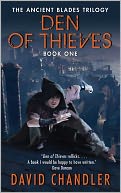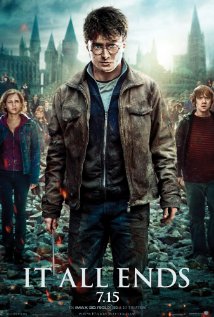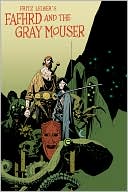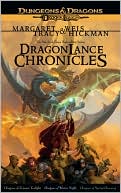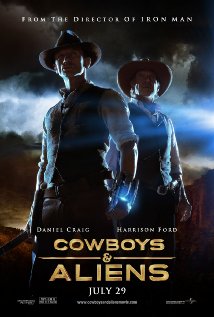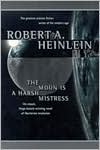 2011 is coming to a close. It’s time to pause and reflect on the year that is ending.
2011 is coming to a close. It’s time to pause and reflect on the year that is ending.
 There’s a lovely quote from Garrison Keillor, “A book is a present that you can open again and again.” There’s a corollary in this house about “not if the cat is sitting on it” but the principle still applies. The good stories from this year will still be good next year. Some of them may even have sequels!
There’s a lovely quote from Garrison Keillor, “A book is a present that you can open again and again.” There’s a corollary in this house about “not if the cat is sitting on it” but the principle still applies. The good stories from this year will still be good next year. Some of them may even have sequels!
These were my favorites of the year. At least when I narrow the list down to 11 and only 11. And even then I fudged a bit. Read on and you’ll see what I mean.
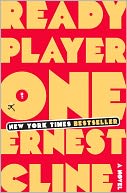 Ready Player One by Ernest Cline (reviewed 12/1/11). This book had everything it could possibly need. There’s a quest. There’s a love story. It’s a coming-of-age story. It’s an homage to videogaming. There are pop-culture references to every cult classic of science fiction and fantasy literature imaginable. There’s an evil empire to be conquered. I couldn’t have asked for more.
Ready Player One by Ernest Cline (reviewed 12/1/11). This book had everything it could possibly need. There’s a quest. There’s a love story. It’s a coming-of-age story. It’s an homage to videogaming. There are pop-culture references to every cult classic of science fiction and fantasy literature imaginable. There’s an evil empire to be conquered. I couldn’t have asked for more.
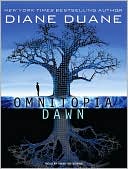 Omnitopia: Dawn by Diane Duane (reviewed 4/22/11). On the surface, Omnitopia and Ready Player One have a lot in common. Thankfully, there is more than meets the eye. Omnitopia takes place in the here and now, or very close to it. The world has not yet gone down the dystopian road that Wade and his friends are looking back at in Ready Player One. On the other hand, any resemblance the reader might see between Worlds of Warcraft mixed with Facebook and Omnitopia, or between Omnitopia Corp and Apple, may not entirely be the reader’s imagination. Howsomever, Omnitopia Dawn also has some very neat things to say about artificial intelligence in science fiction. If you liked Ready Player One, just read Omnitopia: Dawn. Now!
Omnitopia: Dawn by Diane Duane (reviewed 4/22/11). On the surface, Omnitopia and Ready Player One have a lot in common. Thankfully, there is more than meets the eye. Omnitopia takes place in the here and now, or very close to it. The world has not yet gone down the dystopian road that Wade and his friends are looking back at in Ready Player One. On the other hand, any resemblance the reader might see between Worlds of Warcraft mixed with Facebook and Omnitopia, or between Omnitopia Corp and Apple, may not entirely be the reader’s imagination. Howsomever, Omnitopia Dawn also has some very neat things to say about artificial intelligence in science fiction. If you liked Ready Player One, just read Omnitopia: Dawn. Now!
The Iron Knight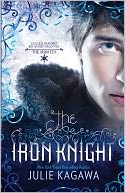 (reviewed 10/26/11) was the book that Julie Kagawa did not intend to write. She was done with Meghan, her story was over. Meghan is the Iron Queen, but what she has achieved is not a traditional happily-ever-after. Victory came at a price. Real victories always do. Meghan’s acceptance of her responsibility means that she must rule alone. Ash is a Winter Prince, and Meghan’s Iron Realm is fatal to his kind. The Iron Knight is Ash’s journey to become human, or at least to obtain a soul, so that he can join his love in her Iron Realm. It is an amazing journey of mythic proportions.
(reviewed 10/26/11) was the book that Julie Kagawa did not intend to write. She was done with Meghan, her story was over. Meghan is the Iron Queen, but what she has achieved is not a traditional happily-ever-after. Victory came at a price. Real victories always do. Meghan’s acceptance of her responsibility means that she must rule alone. Ash is a Winter Prince, and Meghan’s Iron Realm is fatal to his kind. The Iron Knight is Ash’s journey to become human, or at least to obtain a soul, so that he can join his love in her Iron Realm. It is an amazing journey of mythic proportions.
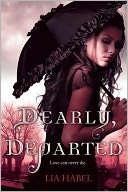 Dearly, Departed by Lia Habel (reviewed 10/18/11) is a story that absolutely shouldn’t work. The fact that it not only works, but works incredibly well, still leaves me gasping in delight. Dearly, Departed is the first, best, and so far only YA post-apocalypse steampunk zombie romance I’ve ever read. I never thought a zombie romance could possible work, period. This one not only works, it’s fun. There’s a sequel coming, Dearly, Beloved. I just wish I knew when.
Dearly, Departed by Lia Habel (reviewed 10/18/11) is a story that absolutely shouldn’t work. The fact that it not only works, but works incredibly well, still leaves me gasping in delight. Dearly, Departed is the first, best, and so far only YA post-apocalypse steampunk zombie romance I’ve ever read. I never thought a zombie romance could possible work, period. This one not only works, it’s fun. There’s a sequel coming, Dearly, Beloved. I just wish I knew when.
 Debris by Jo Anderton (reviewed 09/29/11) is the first book of The Veiled World Trilogy. It’s also Anderton’s first novel, a fact that absolutely amazed me when I read the book. Debris is science fiction with a fantasy “feel” to it, a book where things that are scientifically based seem magical to most of the population. But the story is about one woman’s fall from grace, and her discovery that her new place in society is where she was meant to be all along.
Debris by Jo Anderton (reviewed 09/29/11) is the first book of The Veiled World Trilogy. It’s also Anderton’s first novel, a fact that absolutely amazed me when I read the book. Debris is science fiction with a fantasy “feel” to it, a book where things that are scientifically based seem magical to most of the population. But the story is about one woman’s fall from grace, and her discovery that her new place in society is where she was meant to be all along.
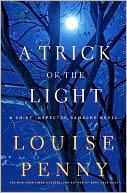 A Trick of the Light by Louise Penny (reviewed 09/19/11). If you love mysteries, and you are not familiar with Louise Penny’s work, get thee to a bookstore, or download her first Chief Inspector Gamache mystery, Still Life, to your ereader this instant. Louise Penny has been nominated for (and frequently won) just about every mystery award for the books in this series since she started in 2005. Find out why.
A Trick of the Light by Louise Penny (reviewed 09/19/11). If you love mysteries, and you are not familiar with Louise Penny’s work, get thee to a bookstore, or download her first Chief Inspector Gamache mystery, Still Life, to your ereader this instant. Louise Penny has been nominated for (and frequently won) just about every mystery award for the books in this series since she started in 2005. Find out why.
I love Sherlock Holmes pastiches. (This is not a digression, I will reach the point). I have read all Laurie R. King’s Sherlock Holmes/Mary Russell books, some more than once. I almost listed Pirate King (reviewed 9/9/11), this year’s Holmes/Russell book instead of Trick. But Pirate King was froth, and Penny never is. A regular contributor to Letters of Mary, the mailing list for fans of the Holmes/Russell books, recommended the Louise Penny books. I am forever grateful.
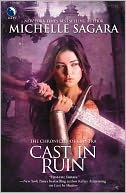 The Elantra Series by Michelle Sagara (review forthcoming). I confess I’m 2/3rds of the way through Cast in Ruin right now. I’ve tried describing this series, and the best I can come up with is an urban fantasy series set in a high fantasy world. I absolutely love it. It’s the characters that make this series. Everyone, absolutely everyone, is clearly drawn and their personality is delineated in a way that makes them interesting. There are people you wouldn’t want to meet, but they definitely are distinctive. It’s also laugh-out-loud funny in spots, even when it’s very much gallows humor. I’m driving my husband crazy because I keep laughing at the dialog, and I can’t explain what’s so funny. I would love to have drinks with Kaylin. I’d even buy. But the Elantra series is not humor. Like most urban fantasy, it’s very snarky. But the stories themselves have a crime, or now, a very big problem that needs solving, and Kaylin is at the center of it. Whether she wants to be or not.
The Elantra Series by Michelle Sagara (review forthcoming). I confess I’m 2/3rds of the way through Cast in Ruin right now. I’ve tried describing this series, and the best I can come up with is an urban fantasy series set in a high fantasy world. I absolutely love it. It’s the characters that make this series. Everyone, absolutely everyone, is clearly drawn and their personality is delineated in a way that makes them interesting. There are people you wouldn’t want to meet, but they definitely are distinctive. It’s also laugh-out-loud funny in spots, even when it’s very much gallows humor. I’m driving my husband crazy because I keep laughing at the dialog, and I can’t explain what’s so funny. I would love to have drinks with Kaylin. I’d even buy. But the Elantra series is not humor. Like most urban fantasy, it’s very snarky. But the stories themselves have a crime, or now, a very big problem that needs solving, and Kaylin is at the center of it. Whether she wants to be or not.
If you are keeping score somewhere, or just want the reading order, it’s Cast in Moonlight (part of Harvest Moon), Cast in Shadow, Cast in Courtlight, Cast in Secret, Cast in Fury, Cast in Silence, Cast in Chaos, and Cast in Ruin.

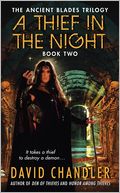 The Ancient Blades Trilogy by David Chandler consists of Den of Thieves (reviewed 7/27/11), A Thief in the Night (reviewed 10/7/11) and Honor Among Thieves (reviewed 12/21/11). This was good, old-fashioned sword and sorcery. Which means the so-called hero is the thief and not the knight-errant. And every character you meet has a hidden agenda and that no one, absolutely no one, is any better than they ought to be. But the ending, oh the ending will absolutely leave you stunned.
The Ancient Blades Trilogy by David Chandler consists of Den of Thieves (reviewed 7/27/11), A Thief in the Night (reviewed 10/7/11) and Honor Among Thieves (reviewed 12/21/11). This was good, old-fashioned sword and sorcery. Which means the so-called hero is the thief and not the knight-errant. And every character you meet has a hidden agenda and that no one, absolutely no one, is any better than they ought to be. But the ending, oh the ending will absolutely leave you stunned.
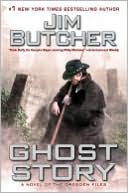 Ghost Story by Jim Butcher (reviewed 7/29/11) is 2011’s entry in one of my absolute all time favorite series, The Dresden Files. And I saw Jim Butcher in person at one of the Atlanta Barnes & Noble stores. Ghost Story represents a very big change in the Dresden Files universe, where Harry Dresden starts growing into those extremely large boots he’s been stomping around in all these years. If you love urban fantasy, read Dresden.
Ghost Story by Jim Butcher (reviewed 7/29/11) is 2011’s entry in one of my absolute all time favorite series, The Dresden Files. And I saw Jim Butcher in person at one of the Atlanta Barnes & Noble stores. Ghost Story represents a very big change in the Dresden Files universe, where Harry Dresden starts growing into those extremely large boots he’s been stomping around in all these years. If you love urban fantasy, read Dresden.
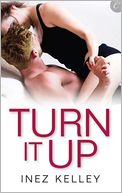 Turn It Up by Inez Kelley (reviewed 8/10/11 and listed here) is one of the best takes on the “friends into lovers” trope that I have ever read. Period. Also, I’m an absolute sucker for smart people and witty dialogue, and this book is a gem. “Dr. Hot and the Honeypot” pretty much talk each other into a relationship, and into bed, while they give out sassy advice over the airwaves on their very suggestive and extremely successful sexual advice radio show.
Turn It Up by Inez Kelley (reviewed 8/10/11 and listed here) is one of the best takes on the “friends into lovers” trope that I have ever read. Period. Also, I’m an absolute sucker for smart people and witty dialogue, and this book is a gem. “Dr. Hot and the Honeypot” pretty much talk each other into a relationship, and into bed, while they give out sassy advice over the airwaves on their very suggestive and extremely successful sexual advice radio show.
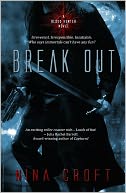
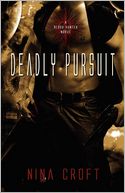 My last book is a two-fer. Break Out (reviewed 8/4/11) and Deadly Pursuit (reviewed 12/6/11) by Nina Croft are the first two books in her Blood Hunter series, and I sincerely hope there are more. This is paranormal science fiction romance. Like Dearly, Departed, this concept should not work. But it absolutely does. And it gets better the longer it goes on. If you have an urban fantasy world in the 20th century, what would happen if that alternate history continued into space? Where do the vamps and the werewolves go? They go into space with everyone else, of course. And you end up with Ms. Croft’s Blood Hunter universe, which I loved. But you have to read both books. The first book just isn’t long enough for the world building. The second one rocks.
My last book is a two-fer. Break Out (reviewed 8/4/11) and Deadly Pursuit (reviewed 12/6/11) by Nina Croft are the first two books in her Blood Hunter series, and I sincerely hope there are more. This is paranormal science fiction romance. Like Dearly, Departed, this concept should not work. But it absolutely does. And it gets better the longer it goes on. If you have an urban fantasy world in the 20th century, what would happen if that alternate history continued into space? Where do the vamps and the werewolves go? They go into space with everyone else, of course. And you end up with Ms. Croft’s Blood Hunter universe, which I loved. But you have to read both books. The first book just isn’t long enough for the world building. The second one rocks.
I stopped at 11 (well 11-ish) because this is the 2011 list. I could have gone on. And on. And on. My best ebook romances list was published on Library Journal earlier in the month. LJ has a ton of other “best” lists for your reading pleasure. Or for the detriment of your TBR pile.

